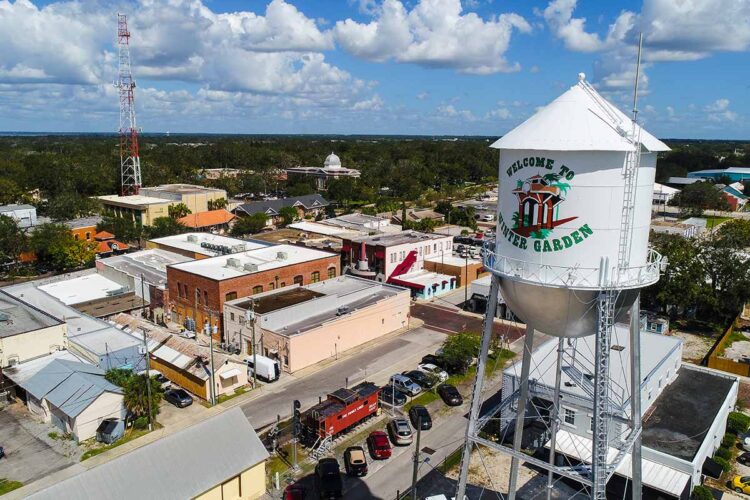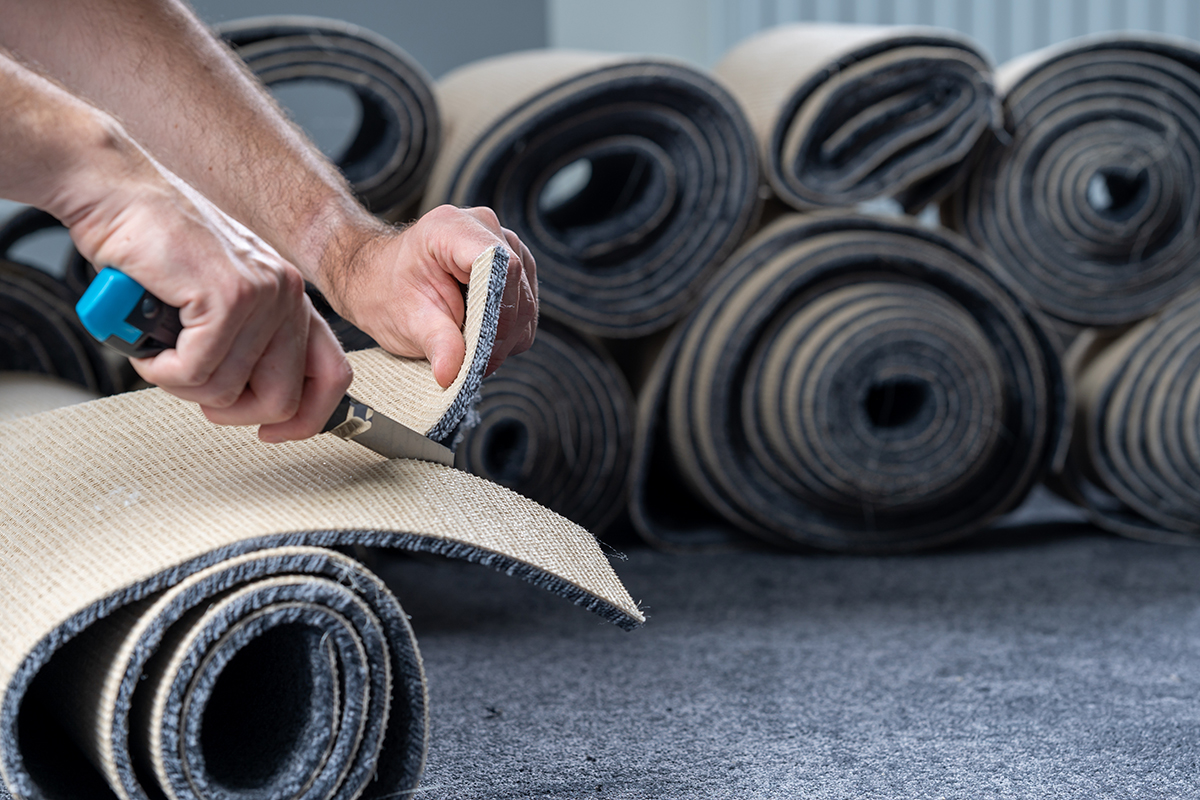Americans are united in their desire for better plastic recycling, but the question of where to locate facilities is running into familiar not-in-my-backyard resistance, complicated further by concerns about racial and social justice.
Most recently, these tensions have been playing out in Florida. In October 2021, PureCycle announced it planned to open a plastic recycling preprocessing facility near Winter Garden, Fla., about 12 miles east of Orlando. The facility was slated to sort and process polypropylene (PP), washing it before shipping it to another PureCycle location to be turned into what the company calls “ultra-pure recycled resin,” but plans have changed in response to community concerns.
Dustin Olson, PureCycle CEO, told Resource Recycling that after the community brought up its concerns of wash line water usage and discharge, the company decided to remove the wash line from the facility, also eliminating the grinding aspect of the process.
“The community was very nervous about us washing, if it was going to use too much water, about microplastics, and we said OK, we just won’t do it,” Olson said. “We took the wash operation out.”
Instead, the facility will now sort incoming plastics and re-bale material for shipment to the company’s Augusta, Ga. location for washing and purifying.
PureCycle is an Orlando-based recycling technology company that uses a recycling and purification process developed and patented by Procter & Gamble to turn used PP into resin with “like-new characteristics.” It does so using a dissolution method without depolymerization. Instead, the plastic’s physical properties are varied in a way that removes contaminants like colors, odors and other additives across multiple stages.
Efforts to engage
In Winter Garden, the community and environmental nongovernmental organizations have opposed the PureCycle site, stating in a press release that locating the facility in a “historically Black, economically disadvantaged suburban area” over the wishes of the city was unjust.
Olson said he believes there is a lot of misinformation about what PureCycle will do at the facility, and PureCycle is working to fully explain operational details.
“Are we listening to the community and re-engaging with the community? One-hundred percent yes,” Olson said. “We have an open door. Whenever they want to talk, we are ready, and we have spoken to them many, many times.”
Similar episodes of community opposition toward new plastics operations have played out across the U.S. in recent years as part of a broader anti-plastic movement.
Earlier this month, former mayor of New York City Michael R. Bloomberg launched “Beyond Petrochemicals: People Over Pollution,” a campaign aiming to stop petrochemical and plastic pollution in the United States.
“Beyond Petrochemicals will turbocharge existing efforts led by frontline communities to block the expansion of more than 120 proposed petrochemical projects concentrated in three target geographies – Louisiana, Texas and the Ohio River Valley,” a press release said.
Notable projects that received community pushback are Formosa Plastics Group’s manufacturing complex in Louisiana, Saudi Basic Industries Corporation (Sabic) and ExxonMobil’s plastics facility on the Texas coast and a Shell ethane-cracker plant in Pennsylvania.
As plastic pollution gets more national and international attention, local battles are often elevated by bigger environmental groups. This is precisely the case in Winter Garden, where 50 environmental NGOs recently signed a letter to Olson and the CEOs of seven PureCycle partners requesting that the company “respect the serious concerns raised by the Community of East Winter Garden, Florida, and abandon its plans for a plastic waste sorting facility there.”
The signers included Greenpeace, Sierra Club, Beyond Plastics, GAIA US, Last Beach Cleanup and many local community groups from across the U.S.
Olson noted that there has not been community opposition to PureCycle’s other locations.
Environmental concerns
The concerns Winter Garden residents have are similar to those of other communities faced with large plastics projects. Environmental advocates and the Winter Garden community have opposed the PureCycle facility “due to the many direct harms and likely risks created by its construction and operation,” according to a Plastic Pollution Coalition press release. It notes that the facility would be in close proximity to an elementary school and is adjacent to homes.
“The potential consequences of PureCycle’s planned activities and operations include release of toxic chemical and microplastic pollution, noxious odors, noise and light pollution, increased truck and vehicle traffic, emission of climate-warming greenhouse gases and high risk of fires and explosions,” the press release stated.
Jamie Holley, an East Winter Garden resident and president of the community advocacy group One Winter Garden, said in the press release that PureCycle’s facility “belongs in a heavy industry area, not on the same street as our community that we are trying so hard to build up.”
“We must also take into consideration our environmental health,” Holley said. “We have one of the largest lakes in the state right here, Lake Apopka. We do not need PureCycle’s tainted discharge water polluting our lake. Then there is the noise, the traffic, the foul smells and the trucks 24 hours a day. It’s not wanted or needed here by the residents.”
Olson said with the wash line removed from the plans, “the only water we use is for sinks and toilets.”
He added that PureCycle will not be burning plastic or creating microplastics, and it has the best fire safety systems in place. Trucks will be limited to daylight hours to reduce traffic, and there will be no curbside waste or tipping floor, making it a cleaner facility than what many people associate with materials recovery facilities, or MRFs. The facility is not a MRF, he added, and it will renovate existing spaces on site over constructing a new building.
The Plastic Pollution Coalition said in another press release that it is “concerned that an unwelcome plastic waste facility is located in a historically Black, economically disadvantaged community under the guise of creating a ‘sustainable’ and ‘circular’ economy.”
“In reality, PureCycle’s choice and actions to push the location through constitute a social and environmental injustice,” the press release said.
PureCycle mostly communicated with the county, Olson said, but there were discussions with the city and community as well. He said those are ongoing and the company has an open door policy.
“We offer stability for that local community,” he said, noting that the warehouse was previously occupied by packaging company Crown Cork & Seal, which had provided jobs until it moved several years ago. “We’ve got great technology, great business and a safe operation that will be there for years, and we think that’s going to be a great place for people to anchor to in the neighborhood.”
The city is legally challenging Orange County’s zoning approval for the facility, which is on a parcel zoned for light industrial use.
Olson said PureCycle bid on the property and then worked transparently with the county on plans for the facility.
“It’s an industrially zoned property anyway, so our process fits into it. We spent a lot of time working with the county to make sure the zoning was appropriately described and we discussed what we do,” he said.
Aiming for circularity
Olson said his vision is a cleaner environment, and PureCycle has the technology to recycle PP that is often landfilled. But to divert more of that plastic, the company needs feedstock, which is where sortation facilities like the one in Florida come in.
The Orange County location was chosen because Florida’s tourism industry means there is plenty of local PP available, because there was an empty warehouse on site and because the location is central to accessing many larger cities.
“A lot of it goes to incineration so there’s an opportunity for us to divert No. 5 from incineration,” Olson said.
A version of this story appeared in Plastics Recycling Update on September 28.




















